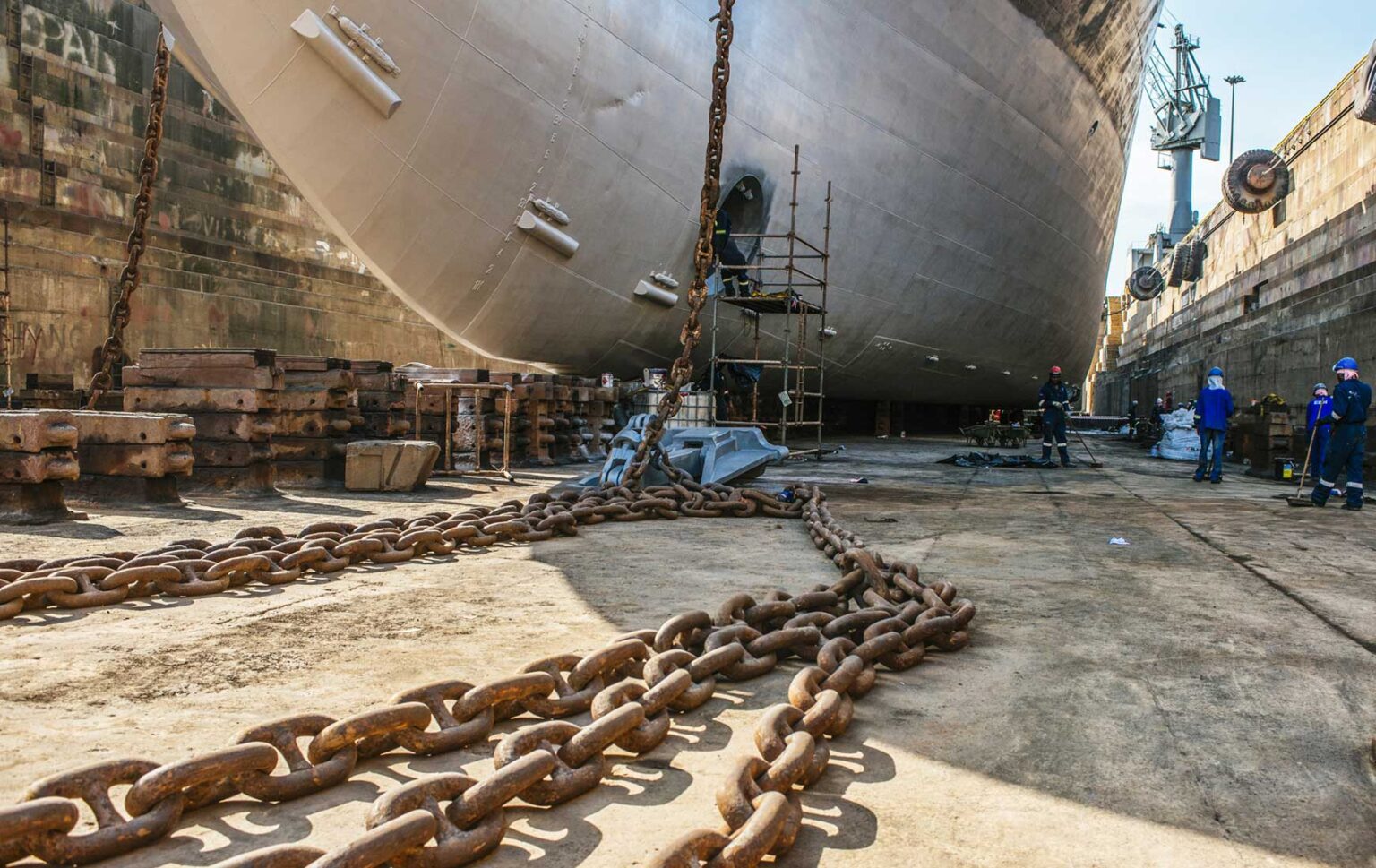The ANC took power with the conviction that state power would resolve the country’s socio-economic deficits. Partly, this reflected the statist ideological convictions of a party schooled in the Soviet bloc. It also denoted an attraction to the idea of a “developmental state”, the latter position being a liveable compromise after the failure of the Eastern European socialism it had admired. A strong, interventionist state would make a purposeful developmental contribution to the country’s new political freedom.
South Africa was endowed with a portfolio of bodies that had played this role in the past and could be adapted to do so in the new era. These were its State Owned Enterprises (SOEs). For years touted as the champions of economic growth and transformation (not only for South Africa but across the continent), they have become synonymous with South Africa’s national malaise: wasteful, corrupt, and incompetently managed.
Their failures are hitting South Africa’s economic prospects hard. Chris Hattingh, a logistics expert and director of the Centre for Risk Analysis, a Johannesburg-based research body, told Africa in Fact: “The ongoing issues across the country’s ports and rail networks inhibit these sectors, the economy, and the country’s future prospects. As the country’s commodity exports continue to decline, South Africa’s reputation as a trade hub on the African continent is damaged, and tax revenues are lost.”
Donald MacKay, director of XA Global Trade Advisors, concurs. “All of this,” he says, “is slowing down the economy. It’s putting a lock on the economy like a traffic jam.”
A 2012 review found that “at least” 715 SOEs existed. Most of these were modest in size, but a handful were true colossi of South Africa’s economy.

The standout examples are Eskom and Transnet. Eskom dated from 1923, and had provided South Africa’s suburbs and industry with a reliable and relatively cheap supply of electricity. Transnet was the heir to the various bodies that had managed South Africa’s transport infrastructure, such as the South African Railways and Harbours administration. Each had provided some of the hard foundations that made a sophisticated industrial economy possible.
At the time of the transition, the ANC acknowledged the value of these bodies, and the potential to drive a developmental agenda. Eskom, in particular, was instructed to embark of an accelerated programme of electrification, a quality-of-life quick-win that the new government could deliver to its constituents.
Yet the two entities also had what would turn out to be a common vulnerability: ultimately, their lines of accountability made politically-determined demands all but inevitable. This would be their undoing.
The ANC had little trust in the officials it inherited from the previous dispensation. It viewed its mandate as an all-encompassing programme of national “transformation”. The state and its companies were obvious targets. Less publicly acknowledged but equally important at this time was that they provided a ready source of high-status and well-remunerated positions for those in the party’s orbit. As impolitic as it was at the time to recognise, many former activists now found themselves in positions for which they lacked expertise and experience.
Out of public view, a crisis was developing. In the early years, a concerted push was made to expand infrastructure for the previously underserved black (and especially rural) population. Electrification, for example, took off rapidly; World Bank data indicates that some 58% of the population had access to electricity in 1996; this had grown to a little over 72% in 2000.
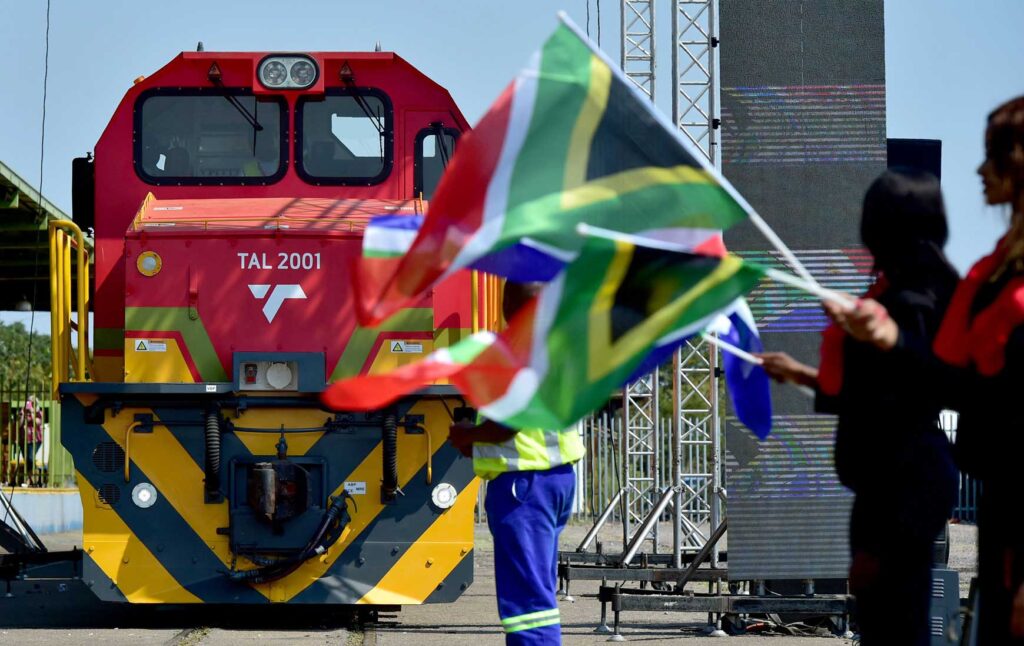
This raised the question of the adequacy of that infrastructure. The Department of Minerals and Energy warned in its 1998 White Paper that energy consumption was rapidly rising and that by 2007, the then-existing surplus would be exhausted; new investments in generation would need to be undertaken by 1999 to head this off. Transport faced similar challenges, with harbour congestion and railway accidents indicating that not all was well.
But this was matched by an ever more confident government and ruling party with a growing inventory of racially transformative legislation and political demands. The most obvious tool here was the use of substantial procurement budgets to drive the growth of black businesses – so-called Black Economic Empowerment. In Eskom, this centred around the purchase of coal. Hitherto, long-term contracts had ensured supplies of suitable quality, sometimes from collieries located adjacent to power stations. In the early 2000s, these arrangements were modified. A new regime introduced a “hierarchy of procurement”. Preferences would be given to designated vendors, Long-term contracts were to be retired.
Simultaneously, demands for “representivity” implemented programmes to appoint and promote staff based on demographics. Particularly at the senior level, this was linked with favouritism for those with party ties, both as a means of patronage and as a guarantee of party control. All of this was a particularly severe handicap where complex technical matters were at stake.
As the 2000s wore on, these factors brought South Africa’s SOEs to the brink. Denuded of skills, critical maintenance was ignored. Race-based preferences and political preferments were inflating prices and delivering inferior quality goods. The latter was especially notable in respect of coal, which was sometimes trucked in from distant parts of the country and was not of the quality required.
It’s worth noting that what had happened to this point followed a deliberate set of policy choices. This was corruption in a literal, structural sense, in that it weakened the integrity of the institutions. It had undermined the quality of the systems and compromised the services they provided. All of this had happened as tough choices loomed, and solid management and operational capacity were critical.
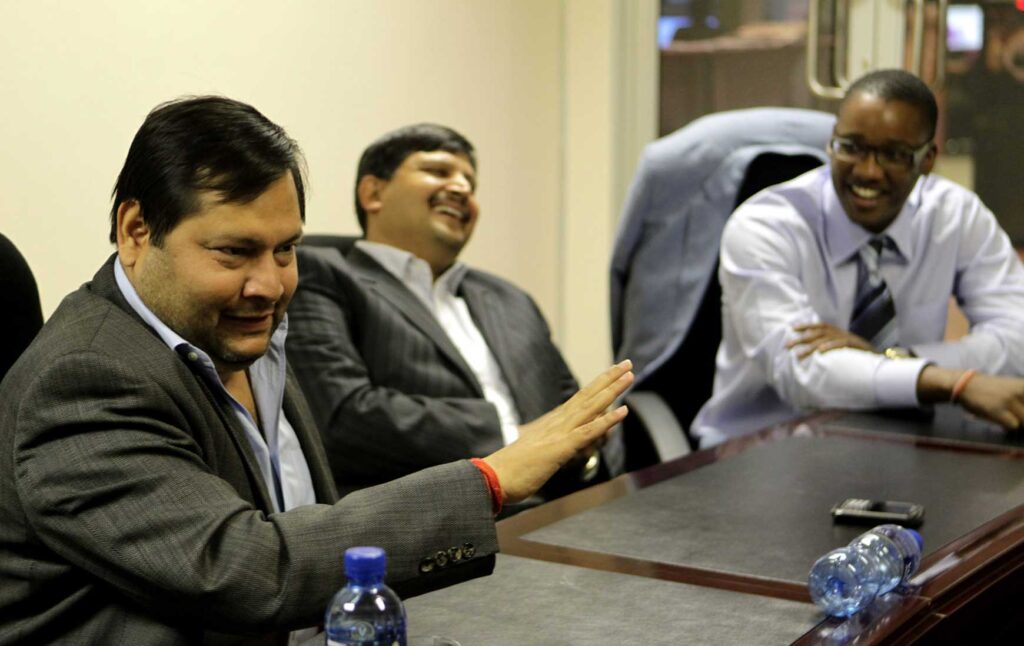
As the power crisis bit and the necessity of creating new generation capacity was recognised, the cumulative effect of these pathologies was exposed. The ANC, it turned out, had established a fundraising outfit, Chancellor House. Its involvement in government contracts, with the obvious conflicts of interest, was of particular concern. Among these was the construction of power stations at Medupi and Kusile. Chancellor House partnered with Hitachi in a successful bid for construction contracts; and received a further payment from Hitachi with the reference “Tender Support Fee – Bravo”.
If, by this point, the challenges before Eskom and Transnet could be explained as institutional corruption, the ascendency of Jacob Zuma unleashed (or coincided with) something more sinister.
South Africa’s transitional society offered bountiful opportunities for illicit enrichment. Zuma himself had been fingered in corruption allegations, and it was widely believed that his presidential bid was partially a gambit to avoid prosecution; certainly, a heavily compromised incumbent in the presidential office signalled a laissez-faire approach to public resources.
Zuma’s presidency has come to be associated with “state capture”. This is a uniquely South African concept denoting the wholesale suborning of the state to corrupt interests. In public discourse, State Capture revolved around the Gupta brothers from India, who had worked their way through modest business ventures in post-apartheid South Africa to become the key players in a web of corrupt extraction that included Zuma and other prominent South Africans. While this is true, it cannot be gainsaid that this was a development of the ANC’s own hegemonic pretensions. Having commandeered the state for the party, and having weakened its institutions, they were vulnerable to the predations that followed.
The basic pattern was that political influence was invoked in making executive appointments. Once in place, these people could swing contracts to patrons, generating lucrative kickbacks in the process.
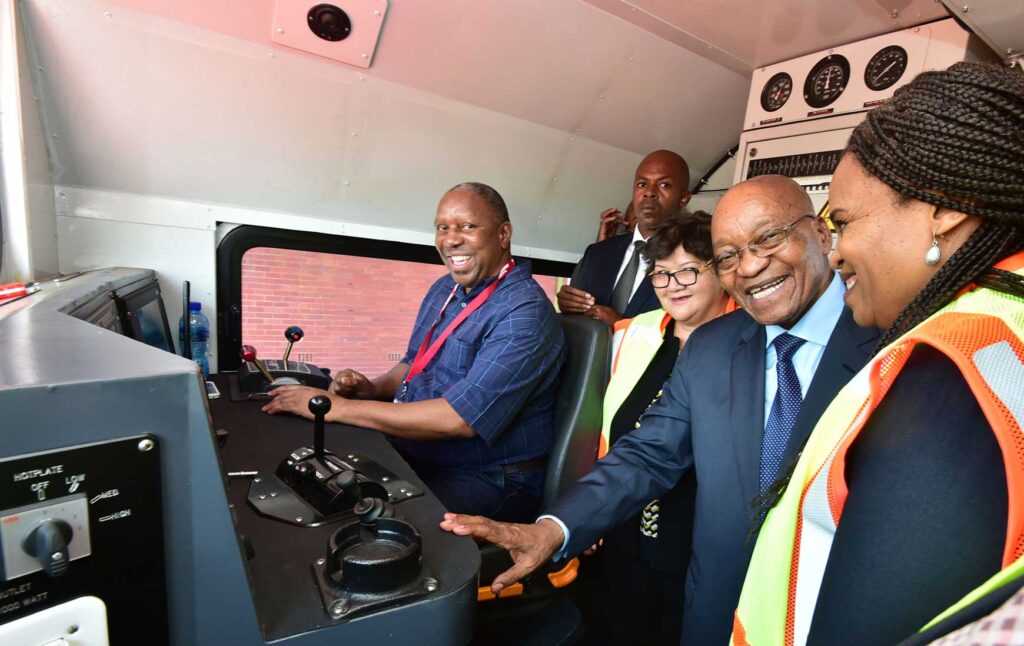
As Chris Hattingh remarks: “Through cadre deployment and preferential procurement, state owned companies such as Transnet find it all the more difficult to do their work. Contracts, materials, and work generally cannot be completed, or even undertaken without some element of ‘beneficial’ or political relationship established first. Materials and components sourced from ‘chosen’ sources always tend to cost more than they would in a competitive market, meaning Transnet’s already dwindling resources become further constrained.”
Testimony before the Zondo Commission into State Capture heard that executives at Transnet – apparently close to the Guptas – were appointed by the government, ensuring that “a small group of senior executives and directors were positioned to collude in the award of contracts”. One of these involved the 2012 purchase of a fleet of locomotives from Chinese companies. Funds were diverted into Gupta-linked operations (and kickbacks) that added little value, and the projected costs escalated from an initial R39 billion to around R55 billion. The Chinese suppliers, meanwhile, were found delinquent in their tax obligations – and then refused to supply spare parts. Despite being no more than a decade old, many of the locomotives have been unusable for years.
At Eskom, Zondo found that the Guptas had engineered the installation of new leadership in 2015. The Guptas then moved to acquire a coal mine, an endeavour in which it received the personal support of the then minister of Mineral Resources, Mozebenzi Zwane. The mine would supply coal to Eskom, through the Gupta’s Tegeta company, at a cost exceeding what had previously been paid. As Donald MacKay comments: “When you deploy incompetent people, corrupt people, or both, things break.”
President Ramaphosa and his supporters branded their accession to office as a repudiation of corruption. New leadership was brought into both Transnet and Eskom – but the depth of decay was formidable.
In late 2019, Andre de Ruyter took over as Eskom’s CEO. His time in office was not a happy one. Loadshedding intensified, and he was regularly attacked in racial terms, effectively undermining “transformation”.
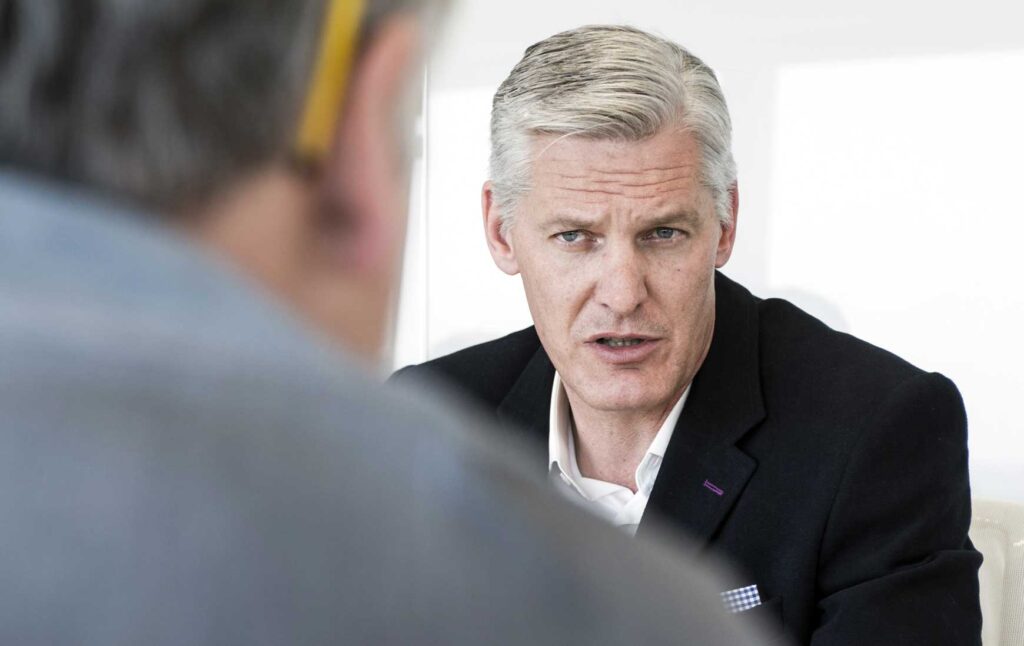
De Ruyter drew attention to the penetration of Eskom by criminal syndicates, some linked to politicians and law enforcement. Sabotage of equipment was widespread, as were scams involving coal deliveries. Shortly before his resignation, in February last year, he told a television journalist that an attempt had been made on his life, that a senior manager had routinely worn a bulletproof vest, and that he had reported a corrupt politician to a cabinet minister (both unnamed) to be met with resigned indifference. Perhaps most damningly, he described Eskom as the ANC’s “feeding trough”. “I think it is entrenched,” he said in the interview.
Meanwhile, the impact on the country has been. Busi Mavuso, the outspoken CEO of Business Leadership South Africa, says the failure of the country’s network industries is probably the single biggest problem facing the country’s economy. “We all knew this was coming,” she says. “The government knew, but they never did anything to prevent it. Now we’re are sitting with these multiple crises.”
What can be done to turn this around? The answer depends on the frame of reference. For Donald MacKay, addressing the logistics crisis will take significant investment to properly use the infrastructure that exists, and in expanding it to meet the needs of South Africa’s economy. This will also require a fundamental change in thinking, since “money without competence is just money poorly spent”.
Ultimately, the government and the ANC have chosen a course that has introduced purposeful, structural corruption in South Africa’s SOEs, which has fed seamlessly into decentralised, venal, pathological corruption. And as long as they pursue the current course, the dysfunction will continue.

Rehabilitating South Africa’s SOEs demands, fundamentally, a two-step process: one is to deal firmly with criminality and incompetence. As in any functional organisation, this is a task for properly capacitated management, robust corporate governance and the support of honest law enforcement agencies. But none of this is possible unless South Africa’s authorities embrace rather than reject meritocracy – something the country’s own National Planning Commission has noted; meritorious outcomes will not flow until meritocracy, not political or racial preferment, is embraced.
Referring to Transnet, Chris Hattingh comments: “There is ample scope for pressure on Transnet (and government more widely) to be removed. This can be done by bringing in private sector investment; not where companies can only invest, but Transnet retains ownership (and ultimately decision-making powers), but where said companies have proper, transparent ownership agreements and rules. In terms of macro policy, various government departments need to step back and allow the Transnet board to run the entity like a business, free from political interference. In the same vein, preferential procurement legislation and requirements must be paused or scrapped. These open avenues for corruption, increase costs, and render Transnet’s work all the more difficult.”
Doing so would be the task of a generation, and a distinction must be made between dealing with the state of South Africa’s SOEs and the services they provide to the economy.
South Africa must move towards more extensive private sector involvement in the provision of services. This has been resisted on ideological grounds, but the situation is beyond the point where ideology is a reasonable concern. State bodies in South Africa lack the ability to perform these functions.
Private sector appetite for this exists, though, as MacKay points out, this will only make sense if it can meaningfully intervene. Suggestions for short-term railway concessions, for example, are unattractive, and indicate a mindset that recognises a need for help, but believes it can effectively carry on as before, in the manner that caused the crisis in the first place.
But if it continues to do so, corruption will remain entrenched.

Terence Corrigan is an independent researcher, political consultant, writer, editor and illustrator. He is currently a research fellow at the South African Institute of International Affairs (SAIIA) in its Governance and African Peer Review Mechanism Programme and a policy fellow at the Institute of Race Relations (IRR).

